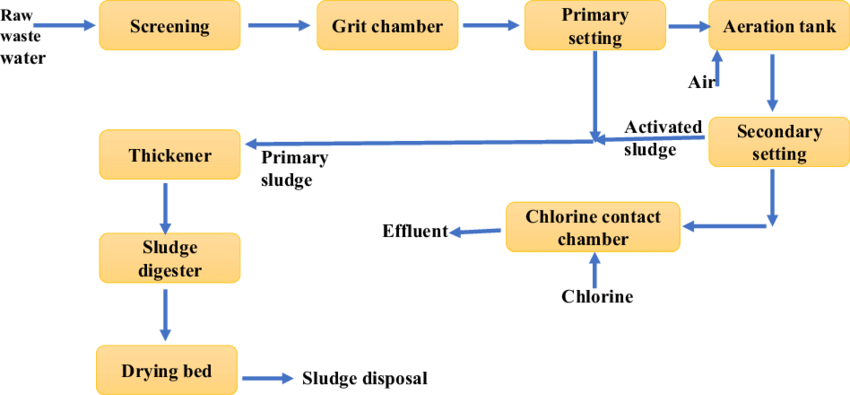Top Guidelines Of Reclaim Waste
Table of ContentsThe Facts About Reclaim Waste UncoveredFascination About Reclaim WasteThe Ultimate Guide To Reclaim WasteThe Best Strategy To Use For Reclaim WasteReclaim Waste Can Be Fun For Everyone
Domestic sewage waste refers to the waste and items from a domestic septic container. The proper monitoring and disposal of domestic sewer waste need liquid waste to be transferred to a sewer treatment plant where the proper techniques and equipment are used to purify and dispose of waste.
Business waste usually includes prospective hazards, such as combustible products or a mixture of liquid and strong waste items, and requires an advanced and comprehensive disposal procedure. The disposal of business waste usually entails the filtration of waste before transport to ensure risk-free and proper disposal. Industrial waste is developed from by-products and drainage of commercial procedures and manufacturing.
This kind of waste can not use the very same sewer administration transport or processes as septic or industrial fluids. The industrial waste management process needs the inspection and testing of liquid waste before it undertakes the disposal procedure (liquid waste disposal melbourne). Runoff waste is the liquid waste that comes from runoff and excess stormwater in very booming locations or cities
Drainage waste can trigger contamination and flooding otherwise taken care of effectively. Find out a lot more regarding drain cleansing and waste administration. Making certain correct waste management can avoid catastrophes and decrease ecological injury. Both people in property setups and experts in commercial or production markets can take advantage of recognizing the procedures and laws of liquid waste administration.
Some Ideas on Reclaim Waste You Should Know
Get in touch with PROS Services today to discover concerning our waste administration and disposal solutions and the proper methods to look after the liquid waste you produce.
(https://padlet.com/leonaube33101/reclaim-waste-hw71hge954tsaxnp)Do you know what happens to your water when you draw the plug, purge the toilet or drain the cleaning maker? No? Well, it deserves knowing. This supposed 'wastewater' is not just an essential resource yet, after treatment, will certainly be released to our land, rivers or the sea. Utilized water from toilets, showers, bathrooms, cooking area sinks, laundries and commercial processes is understood as wastewater.

water made use of to cool down machinery or clean plant and equipment). Stormwater, a kind of wastewater, is runoff that Continue flows from agricultural and city areas such as roofs, parks, gardens, roadways, paths and seamless gutters into stormwater drains, after rainfall. Stormwater flows without treatment directly to regional creeks or rivers, at some point reaching the ocean.
The Ultimate Guide To Reclaim Waste
In Queensland, many wastewater is dealt with at sewage treatment plants. Wastewater is delivered from residential or commercial websites with a system of drains and pump stations, known as sewerage reticulation, to a sewer therapy plant.
The Department of Natural Resources encourages regional governments about handling, operating and maintaining sewerage systems and treatment plants. In unsewered areas, city governments might call for homeowners to install individual or household sewer treatment systems to treat residential wastewater from commodes, kitchen areas, shower rooms and washings. The Department of Natural Resources authorizes the usage of home systems when they are shown to be effective.
The majority of stormwater gets no treatment. In some brand-new class, treatment of some stormwater to eliminate litter, sand and crushed rock has started utilizing gross pollutant catches. Wastewater treatment occurs in 4 phases: Eliminates solid issue. Larger solids, such as plastics and various other items mistakenly discharged to sewers, are gotten rid of when wastewater is passed via screens.
Wastewater then flows into big storage tanks where solids work out and are gotten rid of as sludge. Grease and scum are skimmed from the surface area. Uses tiny living organisms referred to as micro-organisms to break down and get rid of staying liquified wastes and great bits. Micro-organisms and wastes are incorporated in the sludge. Removes nitrogen and phosphorus nutrients that might create algal flowers in our rivers and threaten water life.
More About Reclaim Waste
Nutrient elimination is not readily available at all sewer therapy plants since it needs costly specialised equipment. Clear liquid effluent generated after therapy may still have disease-causing micro-organisms - liquid waste disposal melbourne.

This typically implies wastewater has to be dealt with or contaminants gotten rid of prior to it can be discharged to waterways. A lot of wastewater flows right into the sewerage system. Under the Act, city governments administer approvals and licences for ecologically relevant tasks (ERAs) entailing wastewater launches that may have a regional effect. The department carries out approvals and licences to ERAs entailing wastewater releases that could have a local or statewide impact.
Some Known Incorrect Statements About Reclaim Waste
Otherwise, examples are considered research laboratory analysis. Usually numerous tests are required to develop the levels of each of the different pollutants such as oils, hefty steels and pesticides in water. Tracking provides accurate info regarding water high quality and can validate that licence conditions are being satisfied. The details obtained through tracking offers the basis for making water high quality choices.